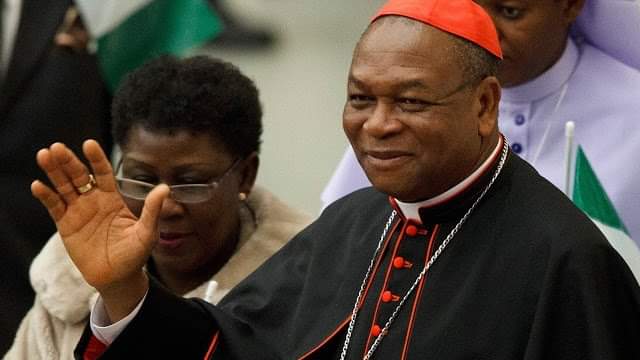The Northern Emancipation Network (NEN), has expressed its disapproval of the comments made by Cardinal Onaiyekan against the Chairman of the Independent National Electoral Commission (INEC), Mahmood Yakubu, The arguing that the Cardinal’s remarks are uncomplimentary and excessively partisan for a serious cleric.
NEN in a statement by the chairman, Suleiman Abbah, Cardinal Onaiyekan’s partisanship was evident when he condemned the electoral process immediately after the election.
“The Cardinal’s statement, made before President Tinubu’s inauguration, suggested that he should not be sworn in until after the court’s judgment, contrary to constitutional provisions.
“He Cardinal is now attacking the INEC Chairman personally and accusing the President of certificate forgery on the eve of the Supreme Court’s appeal,” Abbah said.
The NEN argues that Cardinal Onaiyekan’s remarks are unbecoming of a serious cleric and asserted that the public should either ignore him or treat him as a politician in religious attire rather than a genuine man of God.
The NEN further contends that the INEC Chairman has demonstrated a commitment to ensuring credible elections, which a deliberate critic, rather than a cleric, would acknowledge.
“Firstly, the appropriateness of a religious figure engaging in partisan politics, is questionable. The acceptable position is that religious leaders should maintain neutrality and refrain from endorsing or criticizing specific political figures or parties. By openly condemning the electoral process and attacking the INEC Chairman, Onaiyekan has compromised his impartiality and credibility as a spiritual leader.
“Secondly, the timing of the Cardinal’s comments are strategically aimed at influencing the Supreme Court’s appeal. This raises concerns about his motives and whether his statements are driven by personal or political interests rather than a genuine concern for justice and fairness. Such behavior undermines the trust and respect that society places in religious leaders,” Abbah said.
The NEN noted that while religious leaders have the right to express their opinions, they should do so in a manner that upholds their impartiality and credibility.










